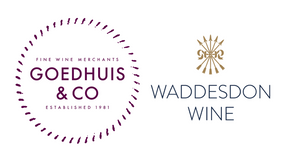
I am turning 40 very, very soon. Like any wine drinker wanting to celebrate this once-in-a-lifetime event, I knew I had to welcome it with open arms and with a wine from my birth year. It is true that the ’69 vintage was dire in certain parts of the world like Bordeaux, but it was potentially very good in Burgundy, the Rhône (particularly the North), and California.
I had been lucky enough to receive a bottle of 1969 Côte Rôtie Les Jumelles from Jaboulet from a dear friend once upon a time. I thought that my upcoming celebrations would be a perfect time to open this bottle. I have a girlfriend who also works in the wine business and who also turned 40 this past June. I couldn’t think of a better person to share it with.
Waiting anxiously at Hix Oyster Bar and Chop Shop in Smithfield, we watched the wine waiter remove the cork. The level was quite low – probably a good 7 cm – and the label was basically disintegrated with a splattering of paper remnants subtly unveiling the vintage, wine and producer. So, I had prepared myself for disappointment – just in case.
But the cork was in very good shape.
When the wine was poured, its core was still a vibrant garnet with a tawny rim. On the nose, it was glorious – smoky, gamey with notes of dried fruits and herbs. There was no mistaking it was from the Northern Rhône, despite many older wines losing their sense of place.
I took a deep breath and tasted it. I have been deceived before with a beautiful nose and a disappointing palate. But this time it was uplifting with a sweet core, wonderful freshness and soft, silky tannins.
There was something extraordinary about having this bottle on this particular day. Several hours earlier my colleague was searching for a gift for a client’s god child and asked me about whether any 2007s could possibly age 25 years. When I suggested a top Châteauneuf du Pape, there was a look of incredulousness. Not that he disapproved of my specific choice, but it’s just that he just wasn’t sure if any wine (besides Port) could age this long anymore.
At the end of evening, I had to re-think what had transpired that day.
Yes, a feminine, fine and soft bottle of Côte-Rôtie had lasted incredibly well but the future of a burly, masculine and concentrated Châteauneuf was being put to the question.
My colleague is not alone in his doubt. Winemaking has changed considerably since the days of yesteryear. With more and more people producing wine that is meant to be consumed earlier than it was even 15 years ago, this has become quite a debatable issue.
Though winemaking has gone in the direction of fruit forwardness, it has also become much more advanced in terms of winery cleanliness and has become far more scientific with instruments, oenologists and laboratories telling winemakers the optimum time to pick, how hot or cold the fermentations must be, and when anything falls outside of the desired parameters (and how to adjust them). Plus, viticulture has advanced so much that high quality domaines produce far better fruit now than they did even two decades ago, making winemaking much easier than it had been with far less guess work. So, surely high quality wine from an excellent vintage must be able to age as well if not better than wines from long ago?
But, we will never really know until today’s children are 40 to see if indeed there is any truth to these theories. Maybe I’m an optimist, but I have faith. I sort of see wine as I see people. People look younger and younger these days (“˜40 is the new 30′, right?). And they are living far longer than even the previous generation. So, bring on 2049. Hopefully by then, 80 will be the new 40!

 Written By
Written By